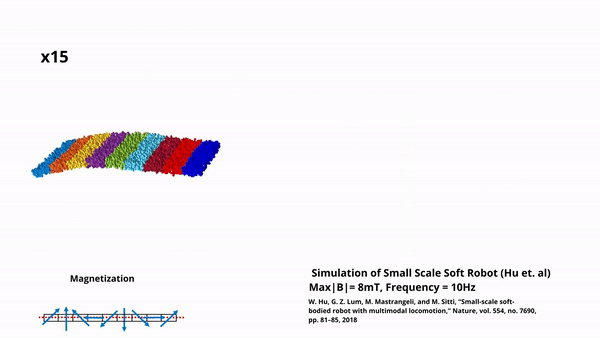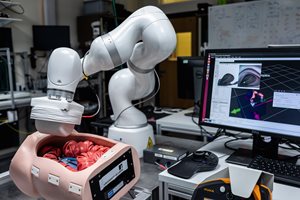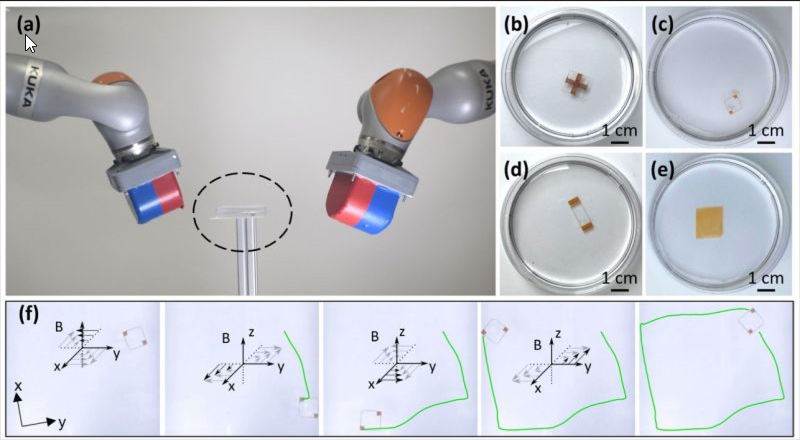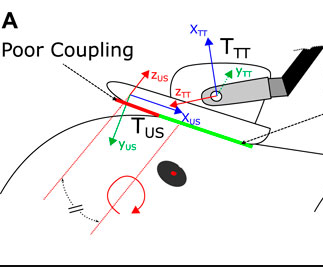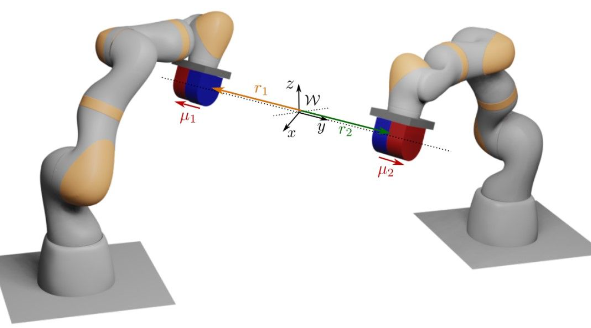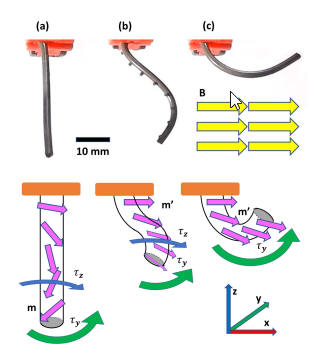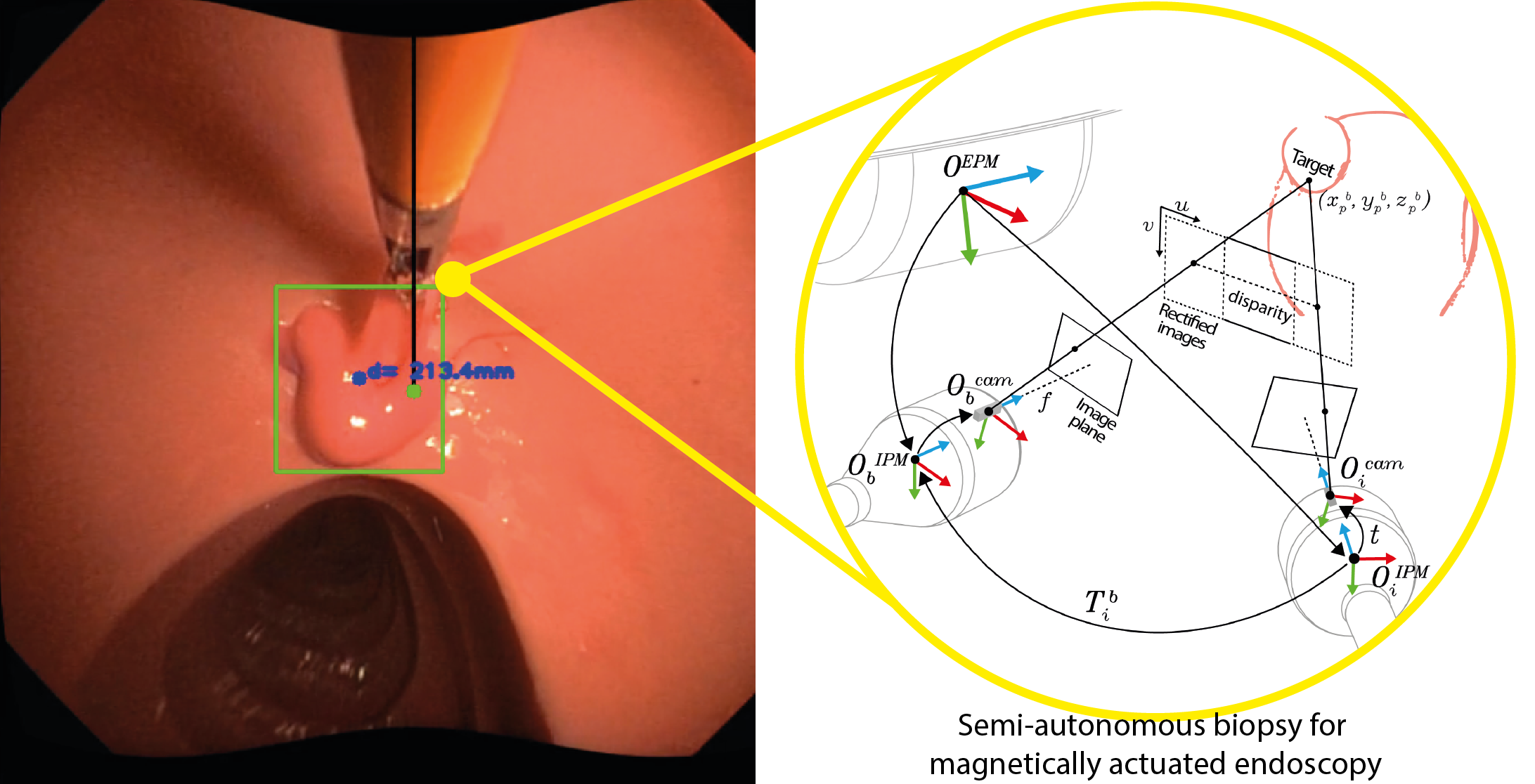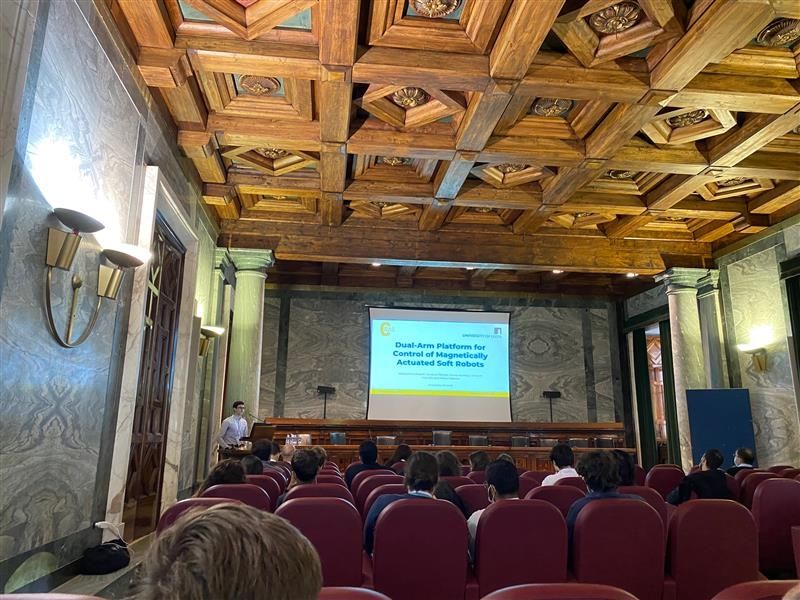In this work, we developed a simulation framework for magnetic soft robots using the Material Point Method (MPM). This framework can accurately model robot behaviour under external magnetic fields, including the complexities of material elasticity and magnetic wrench. The framework can accurately model the self-collision of robots and dynamic response under time-varying fields. We validate this […]
STORMLAB featured in Royal Academy of Engineering Ingenia Magazine
We are thrilled to announce that our work on magnetically guided colonoscopy has been featured in the March 2023 issue of Ingenia Magazine, published by the Royal Academy of Engineering. The innovative instrument developed by our research team at the STORM Laboratory, University of Leeds, uses intelligent and autonomous magnetic manipulation to make colonoscopies more […]
Micro-scale aerosol jet printing of superparamagnetic Fe3O4 nanoparticle patterns
Creating custom patterns of magnetic nanoparticles on flexible substrates may enable new opportunities in early diagnosis and personalised treatment of life-threatening diseases. In this collaboration led by the Future Manufacturing Processes Research Group at the University of Leeds, we demonstrated for the first time that Aerosol Jet Printing can be leveraged to reliably print large-area, […]
Towards Autonomous Robotic Minimally Invasive Ultrasound Scanning and Vessel Reconstruction on Non-Planar Surfaces
In our recently published work, we explore the challenges and a potential solution for enabling autonomous intracorporeal Ultrasound (US) scanning during robotic surgery. Enabled by a novel kinematic sensor-fusion scheme, we demonstrate the autonomous navigation and probe reorientation along a phantom hepatic vessel structure. Check out our paper for in-depth results and future directions of […]
Collaborative Magnetic Manipulation via Two Robotically Actuated Permanent Magnets
What happens if you place two large magnets at the end effector of two serial robots? How many independent degrees of freedom can be magnetically controlled in the central workspace? We have explored these and other research questions in our latest IEEE Transactions on Robotics paper that introduces the dual External Permanent Magnet (dEPM) platform. […]
Gordon Research Seminar presentation and the Gordon Research Conference
Michael and Giovanni had the privilege and pleasure to present their work at the first ever Gordon Research Seminar (GRS) on Robotics last week. While Professor Valdastri presented a summary of the progress made by the Tentacles project at the Gordon Research Conference (GRC). Professor Valdastri summarized the event by saying “Cutting edge research shared […]
Magnetic Soft Continuum Robots With Braided Reinforcement
Flexible catheters are used in a wide variety of surgical interventions. In many cases a lack of dexterity and miniaturization along with excessive stiffness results in large regions of the anatomy being deemed inaccessible. Soft, magnetic snake-like robots have the potential to mitigate these issues. Currently, flexible magnetic catheters rely on interactive forces to “follow […]
‘Robotic Autonomy for Magnetic Endoscope Biopsy
The magnetic flexible endoscope team have just published their latest work entitled ‘Robotic Autonomy for Magnetic Endoscope Biopsy’ to IEEE Transactions on Medical Robotics and Bionics. Tissue biopsies taken during colonoscopy are important to aid in the early detection of diseases such as colorectal cancer, Crohn’s and Ulcerated Colitis. Using our magnetic endoscope, developed to […]
CRAS paper featured in Computer Vision News
Best Paper Award at the 2022 edition of the Conference on New Technologies for Computer and Robot Assisted Surgery (CRAS)
Kudos to Michael Brockdorff and the rest of the magnetic tentacle team at the STORM Lab for receiving the Best Paper Award at the 2022 edition of the Conference on New Technologies for Computer and Robot Assisted Surgery (CRAS) in Naples for the work “Dual-Arm Platform for Control of Magnetically Actuated Soft Robots”. You can […]

